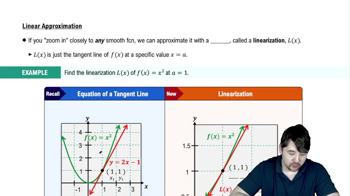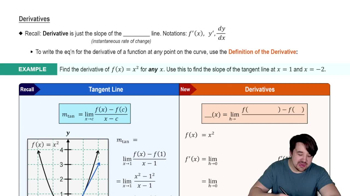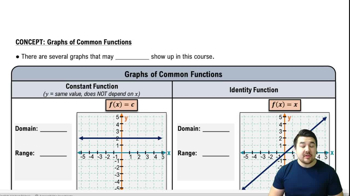Estimating speed Use the linear approximation given in Example 1 to answer the following questions.
If you travel one mile in 59 seconds, what is your approximate average speed? What is your exact speed?
 Verified step by step guidance
Verified step by step guidance Verified video answer for a similar problem:
Verified video answer for a similar problem:

